The Afghanistan of Ahmad Massoud
Report by Marc Roussel
It’s been discussed for months, even years. The Americans are leaving Afghanistan. Trump said so. Biden did not contradict him.
The shameful bargain made with the Taliban threatens to erase the progress made over 20 years of the international presence. What will happen to the country’s women? Its journalists? Educators? Musicians and athletes?
True to the promises his father made, the young Ahmad Massoud welcomes Bernard-Henri Lévy to the Panjshir Valley. There he readies his meager store of weapons, convinced that he will have to face the Taliban. Kabul’s elite are preoccupied with saving their own skins. Neighboring Pakistan is supporting the Islamic extremists. Hope is a scarce commodity on September 11, 2020.
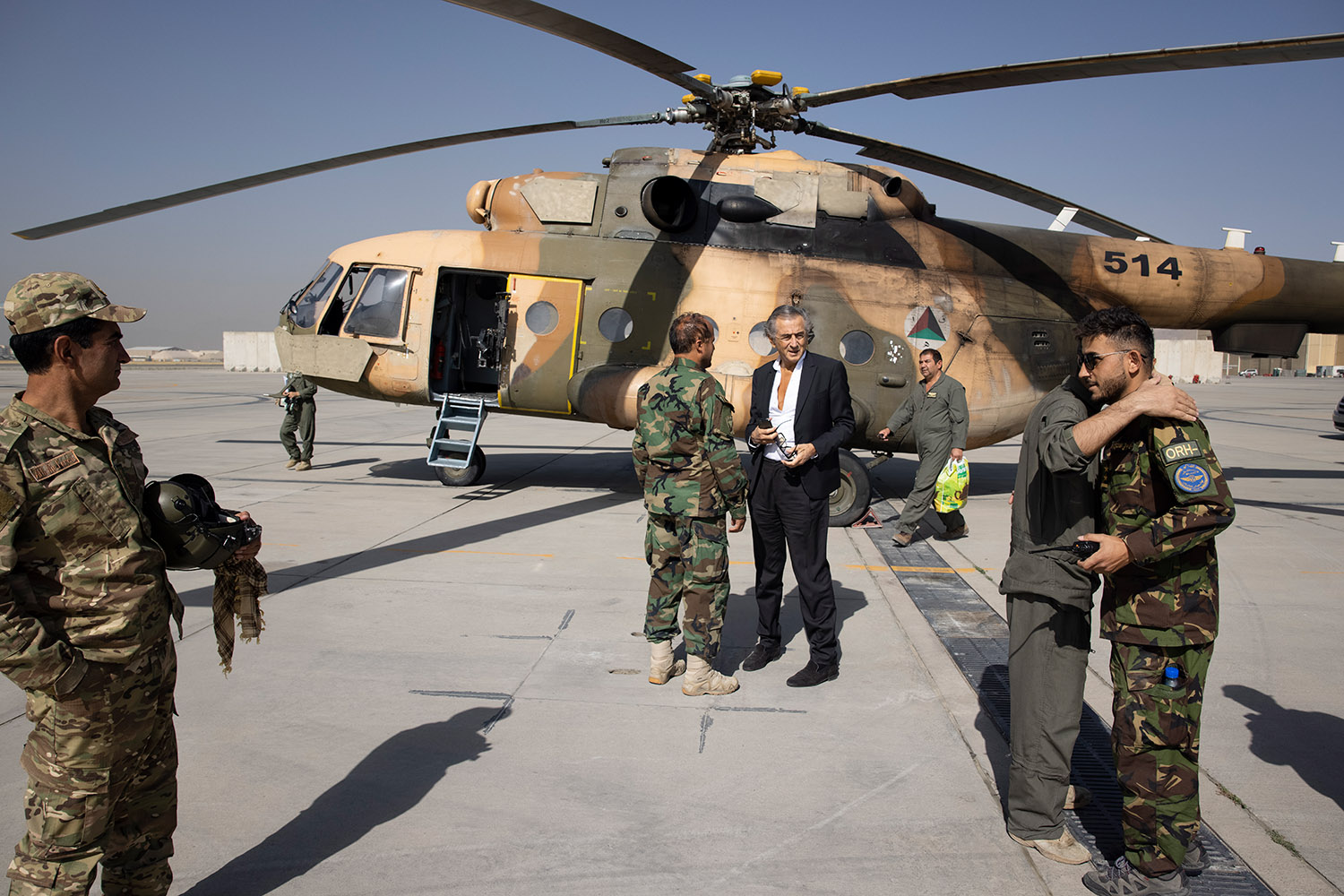
Arrival by helicopter in the Panjshir valley.
“It has the same too-rigid fuselage that, during turbulence, shudders along its entire length.”
Bernard-Henri Lévy, The Will To See
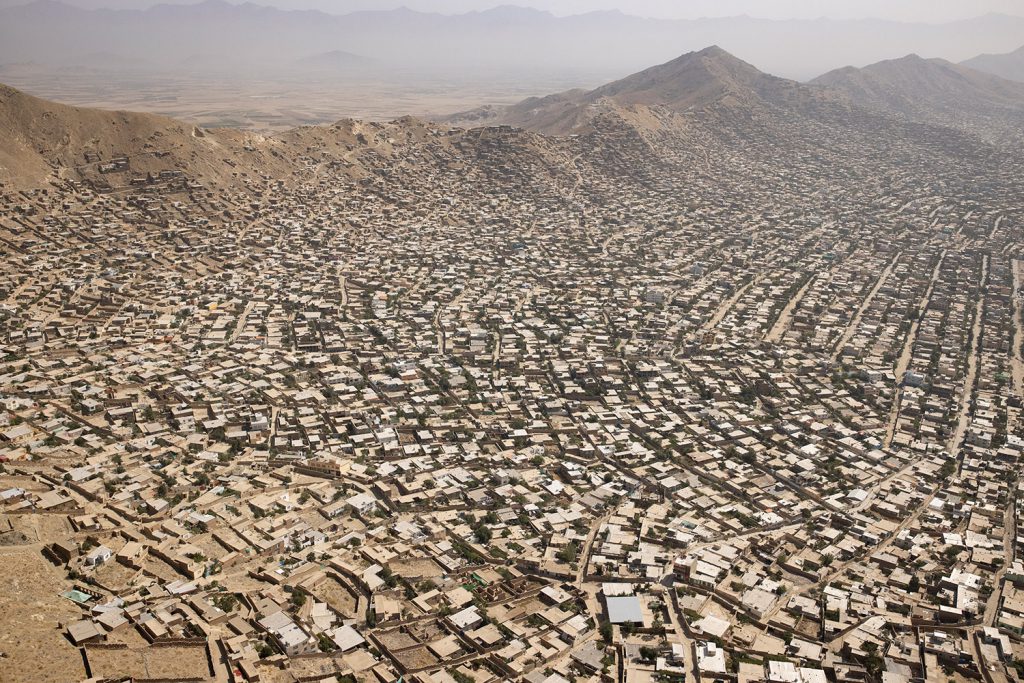
“And what certainly has not changed is the landscape that greets us on landing, one of cubical houses, brick ovens, colorful walled orchards…”
Bernard-Henri Lévy, The Will To See
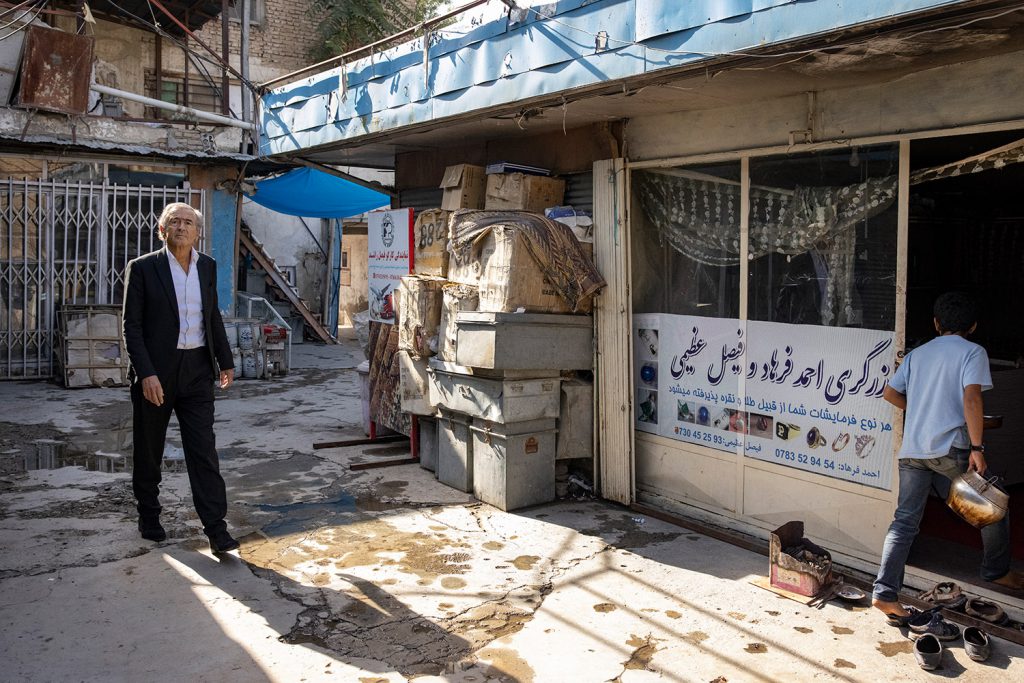
Bernard-Henri Lévy is looking for the father of Homa, that young woman journalist for the Kabul News, who had committed suicide at the age of 21 because her family did not allow her to marry the man she was in love with — on the sole reason he was Shiite.
“The tragic engagement of the Afghan Romeo and Juliette…”
Bernard-Henri Lévy, The Will To See (movie)
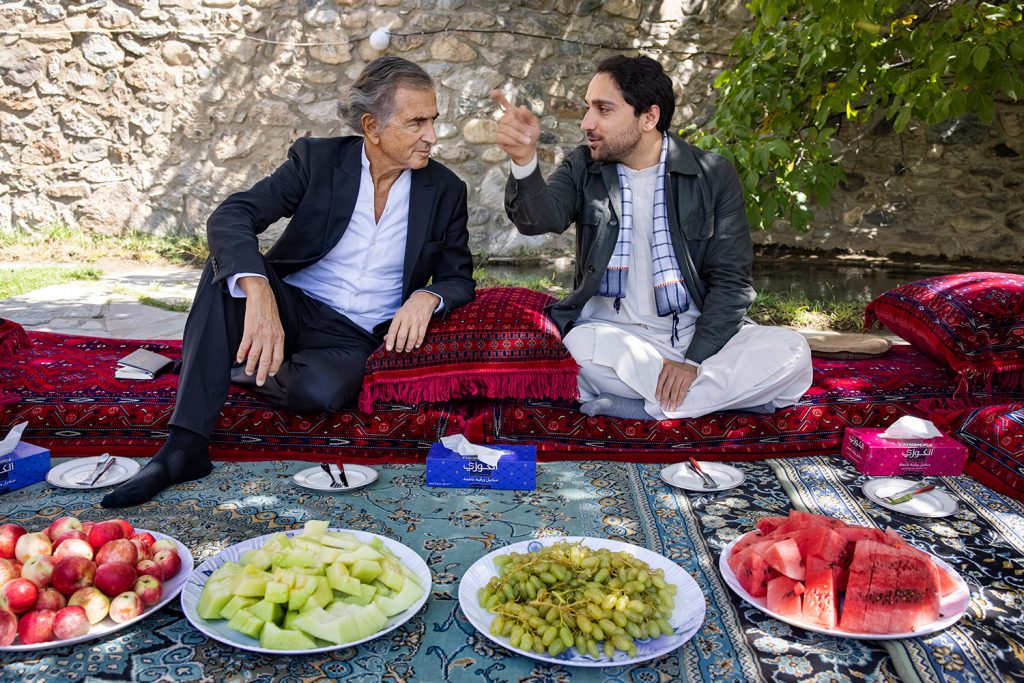
With Ahmad Massoud.
“I ask him to tell me about the legendary father whom he resembles to such a startling degree. He tells me how he had dreamed of being the bravest of the brave once he reached manhood. How, while waiting for that time, he had brought his father his evening tea and helped him untie his shoes when he returned from the front. About this house, which his father had built but was able to occupy only for the last two weeks of his short life. About the garden that his father designed and planted with an artfulness worthy of the Babur Moguls.”
Bernard-Henri Lévy, The Will To See
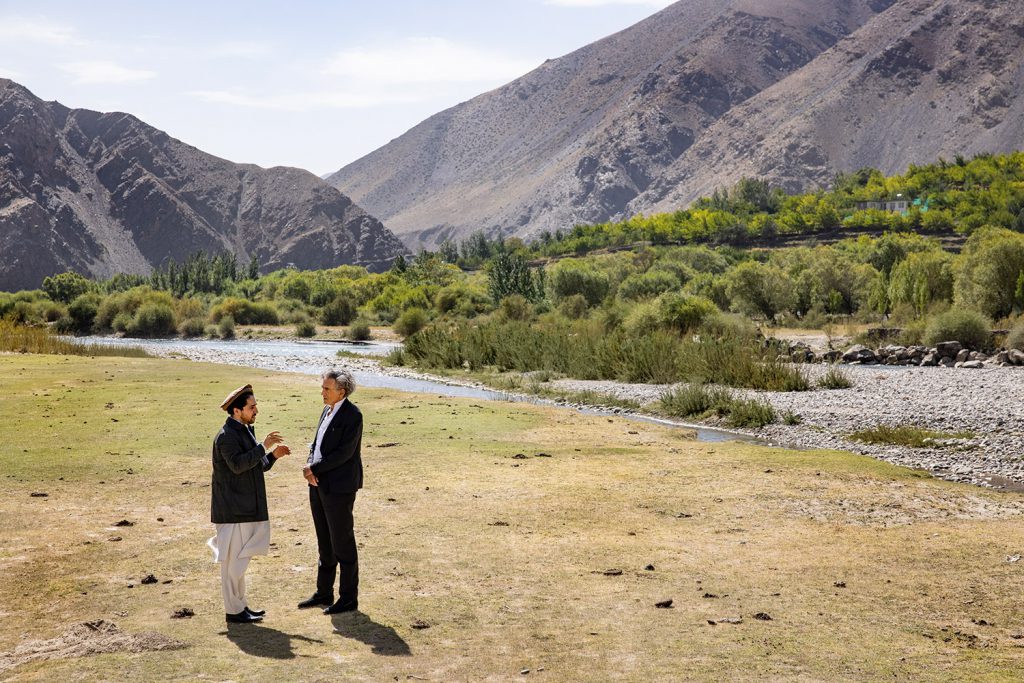
With Ahmad Massoud.
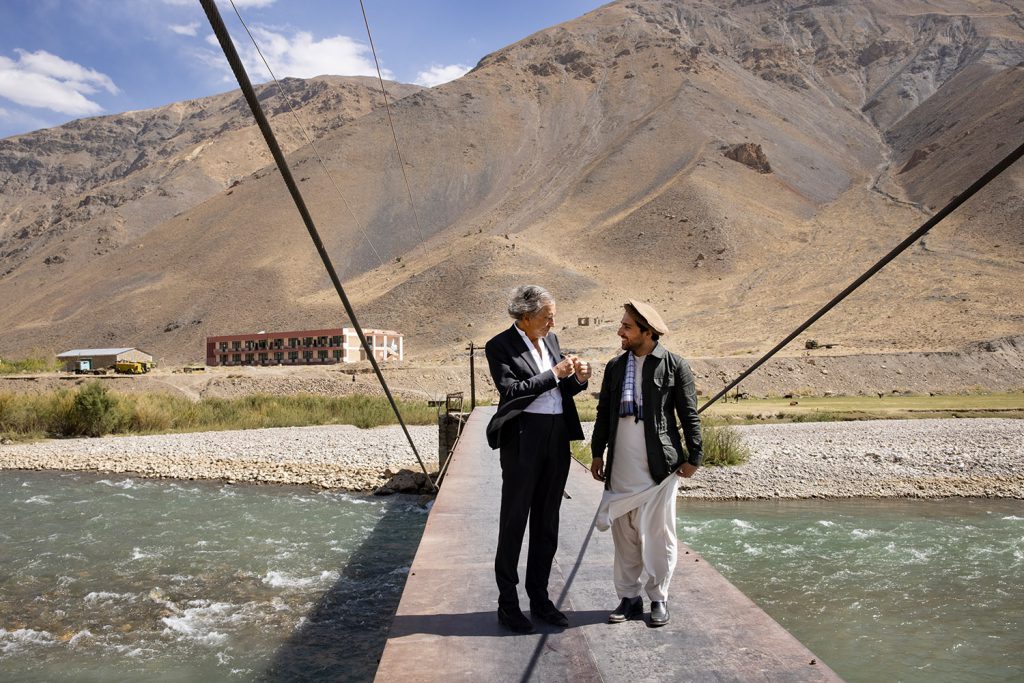
“And finally he tells about the moment of his father’s death, of which I’ve never read a truly reliable account. His son recounts it to me as we cross the bridge where they used to walk…”
Bernard-Henri Lévy, The Will To See
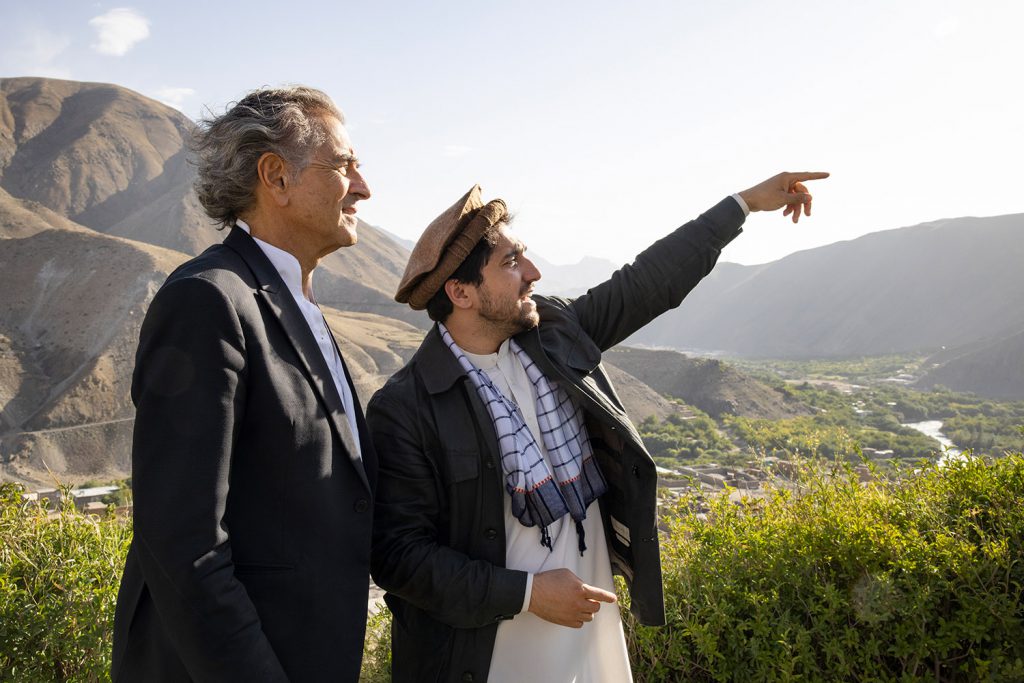
“Finally we return to his childhood home, where we take a last tea on the long garnet sofas facing the river where his father would meditate. ‘I love three things in this world,’ he begins. ‘Books. Gardens. And the astronomy. […] But someone had to pick up the torch. The hope my glorious father embodied could not be allowed to die out. So, yes, for that reason, and for that reason alone, I am ready to take over.’ ”
Bernard-Henri Lévy, The Will To See
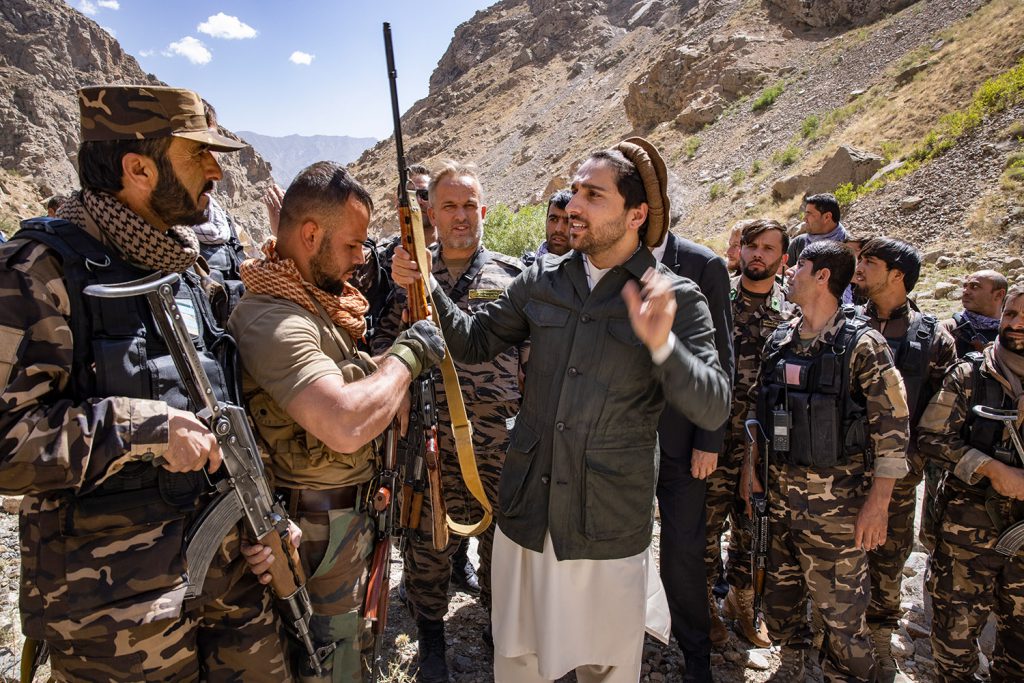
“I watch him in the midst of his officers, some of them old enough to have served his father, and all now on alert. While he inspects their positions and exhorts them to hold fast, I observe the authority that radiates from his still-boyish face.”
Bernard-Henri Lévy, The Will To See
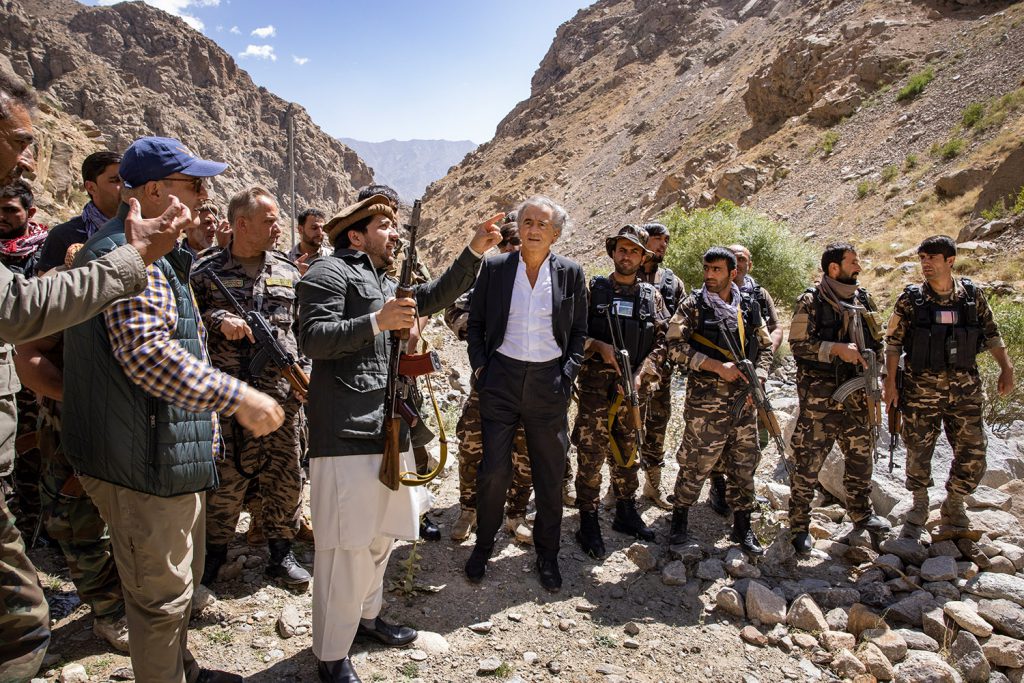
“And when, at the bottom of a vertiginous gorge from which one can hear only the bells of a distant herd, the time comes for the shooting contest, which his father also used to propose to his guests, the evidence speaks for itself.”
Bernard-Henri Lévy, The Will To See
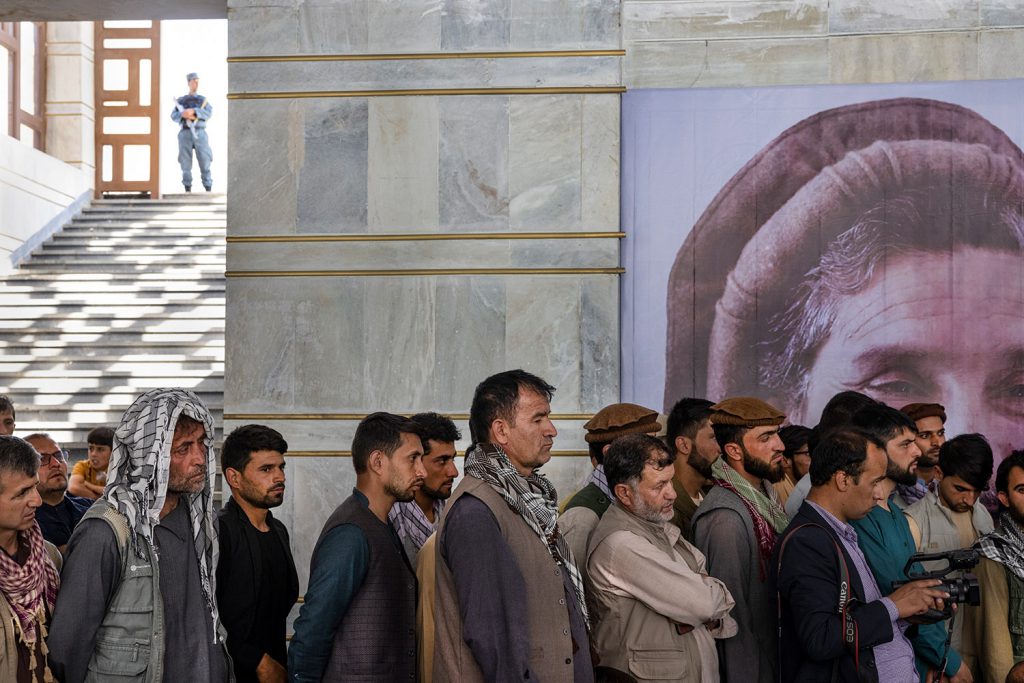
Mujahideen and Panjshir residents gather to hear speeches by Ahmad Massoud and Bernard-Henri Lévy.
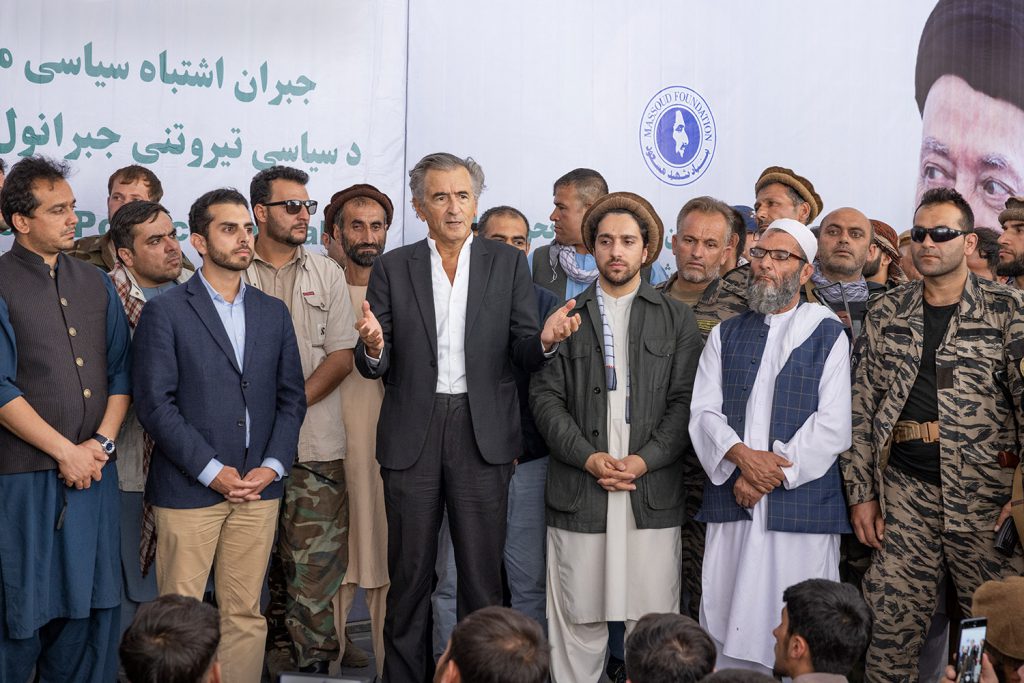
“We are in debt to the aptly named Ahmad Massoud for keeping the promises of his father. We are grateful that he stands as the same sentry guarding the heart of this land, a sentry whose name shall be engraved in the book of courage and the greatness of man. […] In the darkness of these times, there is good news. A new Lion of Panjshir is born.”
Speech by Bernard-Henri Lévy, quoted in The Will To See
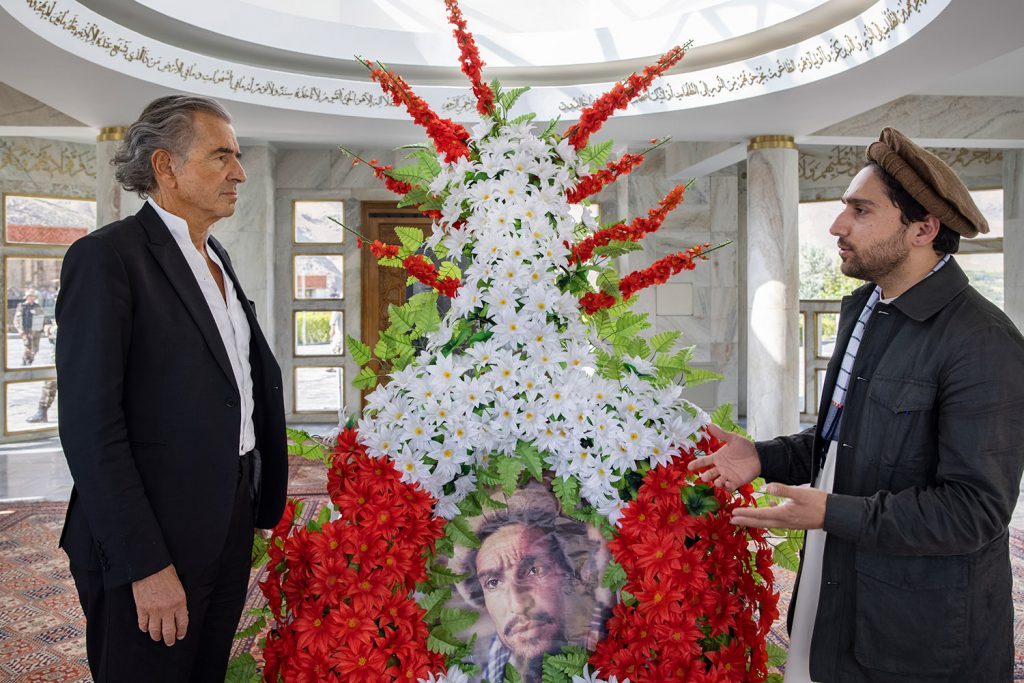
“We move on to the marble mausoleum in which his father rests, where other officers await him, including, on this first Friday after Massoud Day, delegations that have come from Kandahar and Jalalabad to celebrate the memory of the Lion of Panjshir.”
Bernard-Henri Lévy, The Will To See
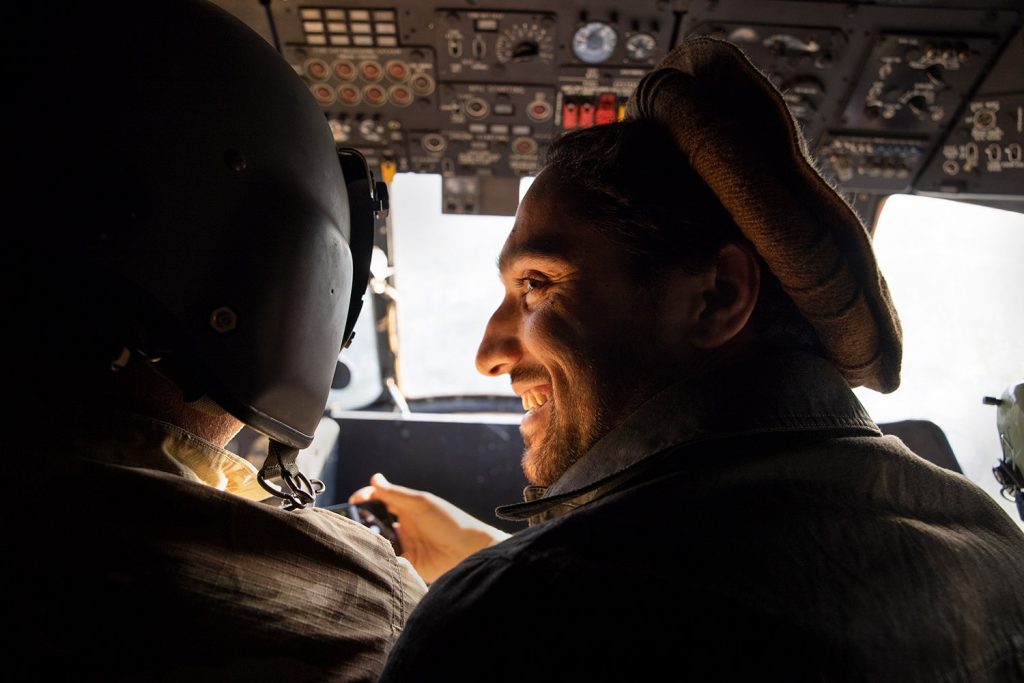
Flight over the valley with Ahmad Massoud.
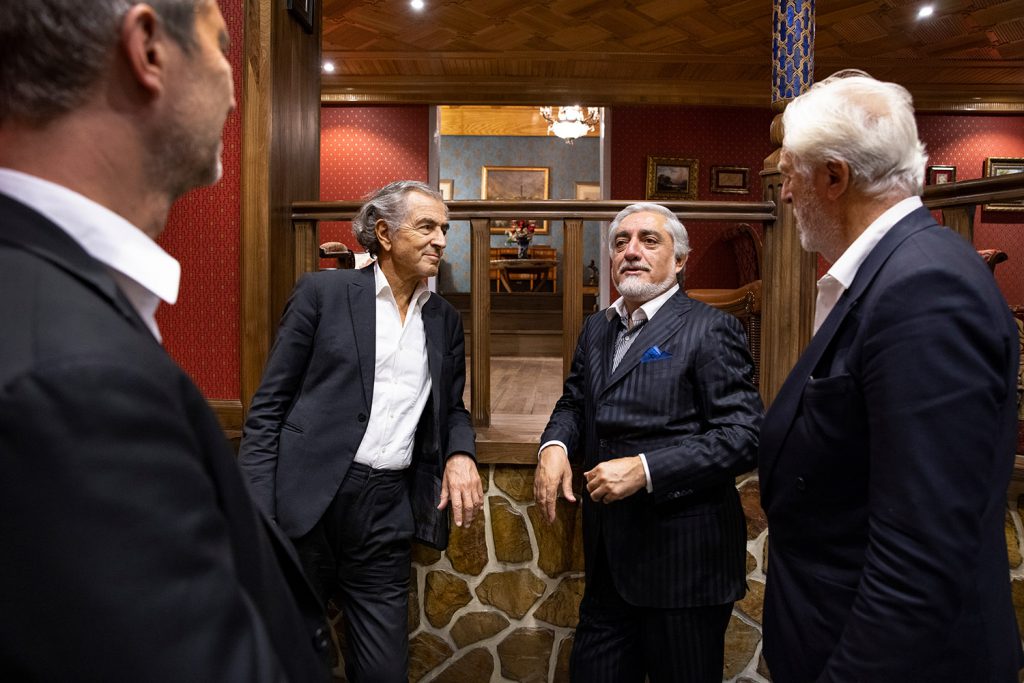
With Abdullah Abdullah, President of the High Council for National Reconciliation.
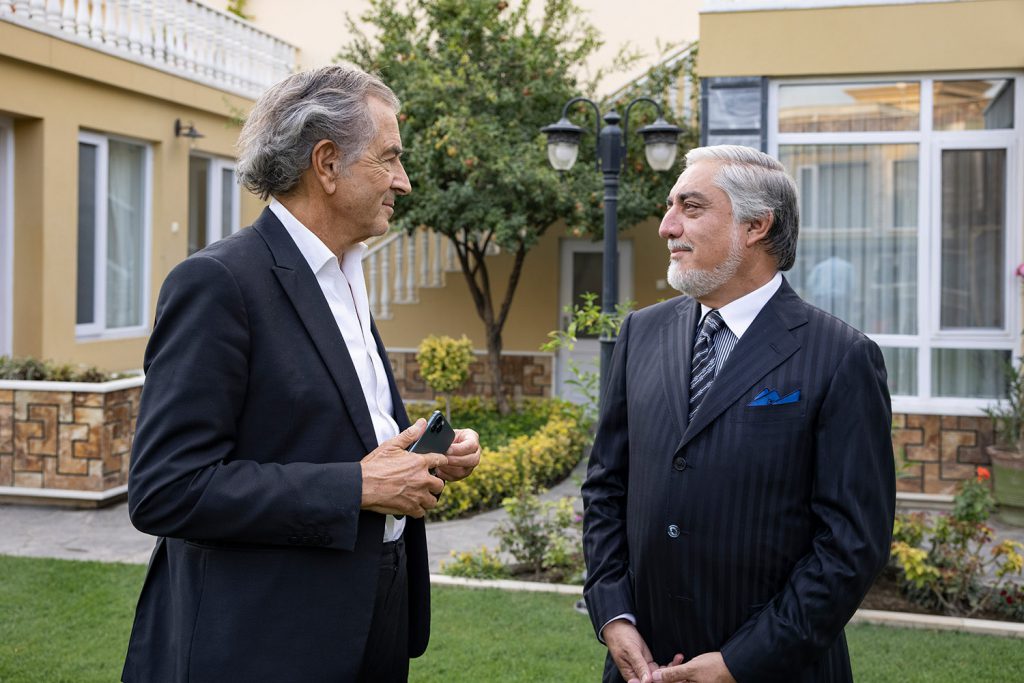
Bernard-Henri Lévy and Abdullah Abdullah.
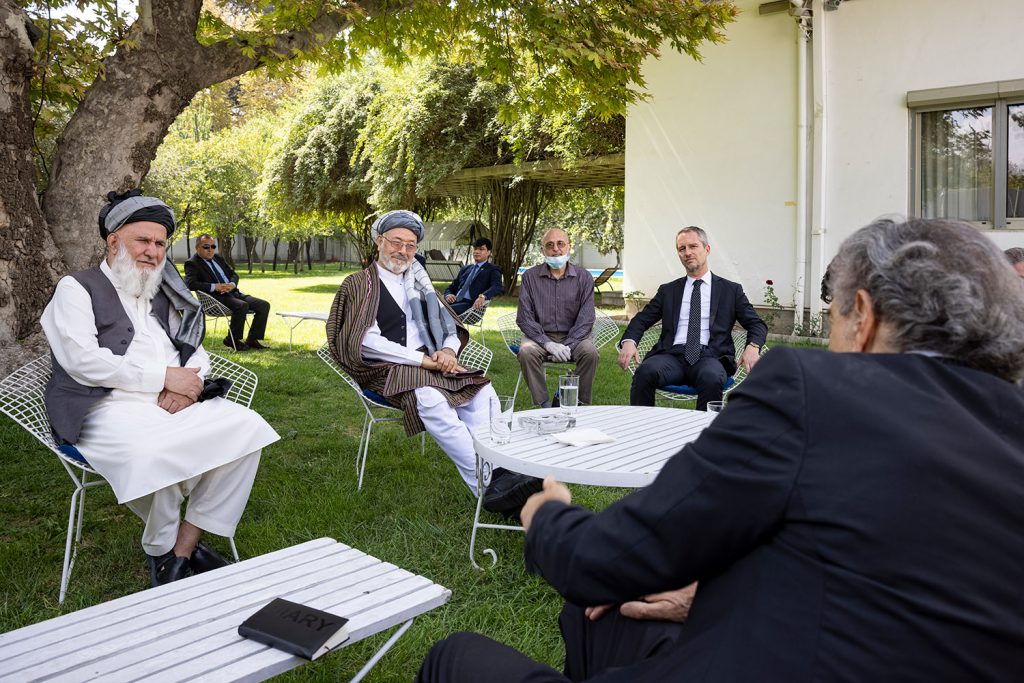
At the French Ambassy in Kaboul, with Consul David Martiron (on the right).
“I lived in the French embassy in the early months of 2002, after Jacques Chirac named me special envoy and asked me to prepare a proposal on a possible French contribution to rebuilding war-torn Afghanistan and, to be blunt, eradicating the Taliban. Twenty years later, where do we stand? The good news is that France has a strong ambassador, David Martinon, who spares no effort to convince the Afghans that it would be suicidal, on the eve of the negotiations in Doha, to yield to Islamist blackmail.”
Bernard-Henri Lévy, The Will To See